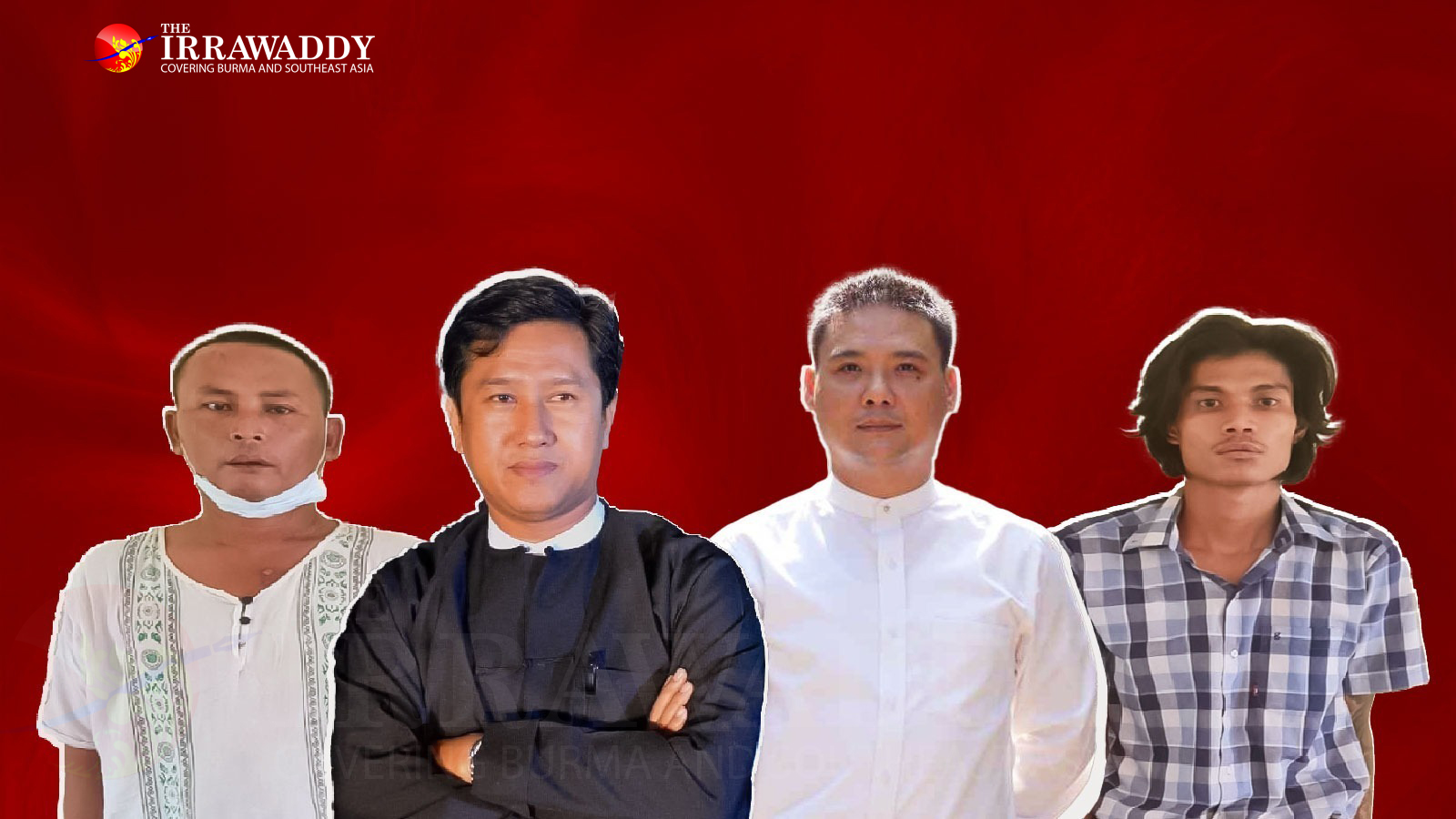Daw Myint Myint San has been weeping tears of sadness and bitterness. Her son Ko Aung Thura Zaw was executed by the military regime in late July along with three other anti-coup activists. Now his mother feels an unbearable pain in her heart whenever the thought comes into her mind that she will never see her eldest son again.
Ko Aung Thura Zaw was not a politician, and neither was he a criminal or a terrorist as the junta has alleged. He ran a steel workshop in Yangon’s Hlaing Tharyar Township and was just an ordinary family man who felt the call of duty to join the Spring Revolution.
“He was a helpful man and tolerant of anyone. He properly supported the family and was the eldest son on whom I relied. So I am overcome with inconsolable grief,” said Daw Myint Myint San.
Her son was just 27 when he was hanged at Yangon’s Insein Prison. When he was arrested in March 2021, his wife was two months pregnant. Ko Aung Thura would never see his child.
The regime refused to return his body and did not even let his mother see him for the last time. “When I asked them [prison authorities] to allow me to see his body, they told me that the funeral happened immediately after the execution,” said Daw Myint Myint San.

Nor did the junta reveal exactly when Ko Aung Thura Zaw was hanged. His relatives were told that the executions were carried out on either July 23 or 24, meaning that the family were unsure when to perform the traditional Buddhist funeral rites, which should be held on the seventh day after death.
Ko Hla Myo Aung, another of the executed activists, was also from Hlaing Tharyar Township. Like Ko Aung Thura Zaw, he was also portrayed by the regime as a murderer, robber and terrorist.
Some 26 people were arrested and tried at a military tribunal for killing an alleged military informant in Hlaing Tharyar in March last year. Only two of them — Ko Aung Thura Zaw and Ko Hla Myo Aung — were sentenced to death on April 12 last year. But as it had been over three decades since the last execution in Myanmar, people assumed that the two would not be hanged.
But on July 25, junta-controlled newspapers announced that the two men had been executed along with veteran pro-democracy activist Ko Jimmy and former National League for Democracy (NLD) lawmaker Ko Phyo Zeya Thaw.
Family members were denied access to Ko Hla Myo Aung’s body. Nor were any of his relatives able to see him before his execution. His wife is serving a three year sentence for incitement in Kyaikmaraw Prison in southern Myanmar’s Mon State and, alone out of the four condemned men, Ko Hla Myo Aung didn’t get to see his family before he was executed.
His father-in-law heard the news of the other men on death row being allowed to see their relatives and was waiting for a call to see Ko Hla Myo Aung, only to learn two days later that he had been hanged.
As devoted NLD supporters, Ko Hla Myo Aung and his wife drove most days from their home in Hlaing Tharyar to join anti-coup protests in Hledan and Myaynigone.
The couple went into hiding after their names became known to the junta. Then, the regime held Ko Hla Myo Aung’s parents-in-law and a teenage nephew hostage at Hlaing Tharyar police station for almost a month before the couple were arrested.
In April, the family met in the cells at Hlaing Tharyar police station. It was to be their last meeting.
In Yangon, Hlaing Tharyar is known as an industrial suburb that is home to squatters and factory workers, low-income families who struggle daily to make ends meet and have no time to keep up with political affairs.
But when the Myanmar military seized power in a coup on February 1, 2021, the residents of Hlaing Tharyar came out onto the streets to show their opposition to the military takeover.
As anti-coup demonstrations gathered momentum in Hlaing Tharyar, the military sent several truckloads of soldiers to crush the protests there on March 14. On that bloody Sunday, at least 22 people were killed by the military in a brutal crackdown. It is believed that the real number of those killed is higher, as the regime disposed of some bodies and some funerals were held quietly due to pressure from the junta.
On March 15, the regime declared martial law in Hlaing Tharyar and began to arrest residents on various charges. Ko Aung Thura Zaw and Ko Hla Myo Aung were among the people arbitrarily detained.
Ko Hla Myo Aung, a short and plump man with a round face, was affectionately nicknamed ‘big pig’ by his neighbors. The 41-year-old was known as a kind man who actively engaged in social welfare and charitable works in his community.
Before the coup, he lived a normal, simple life running a roadside eatery in Hlaing Tharyar.
Most residents of Hlaing Tharyar are migrants from other parts of Myanmar, especially Ayeyarwady Region. Ko Aung Thura Zaw was one of them. He left his native Bogale Township in Ayeyarwady to work in Yangon after he failed the matriculation examination. He settled in Hlaing Tharyar and his mother and two siblings later moved there to live with him.
“His death is a big loss for our family. But I take great pride in it and I respect him,” said his mother.

















